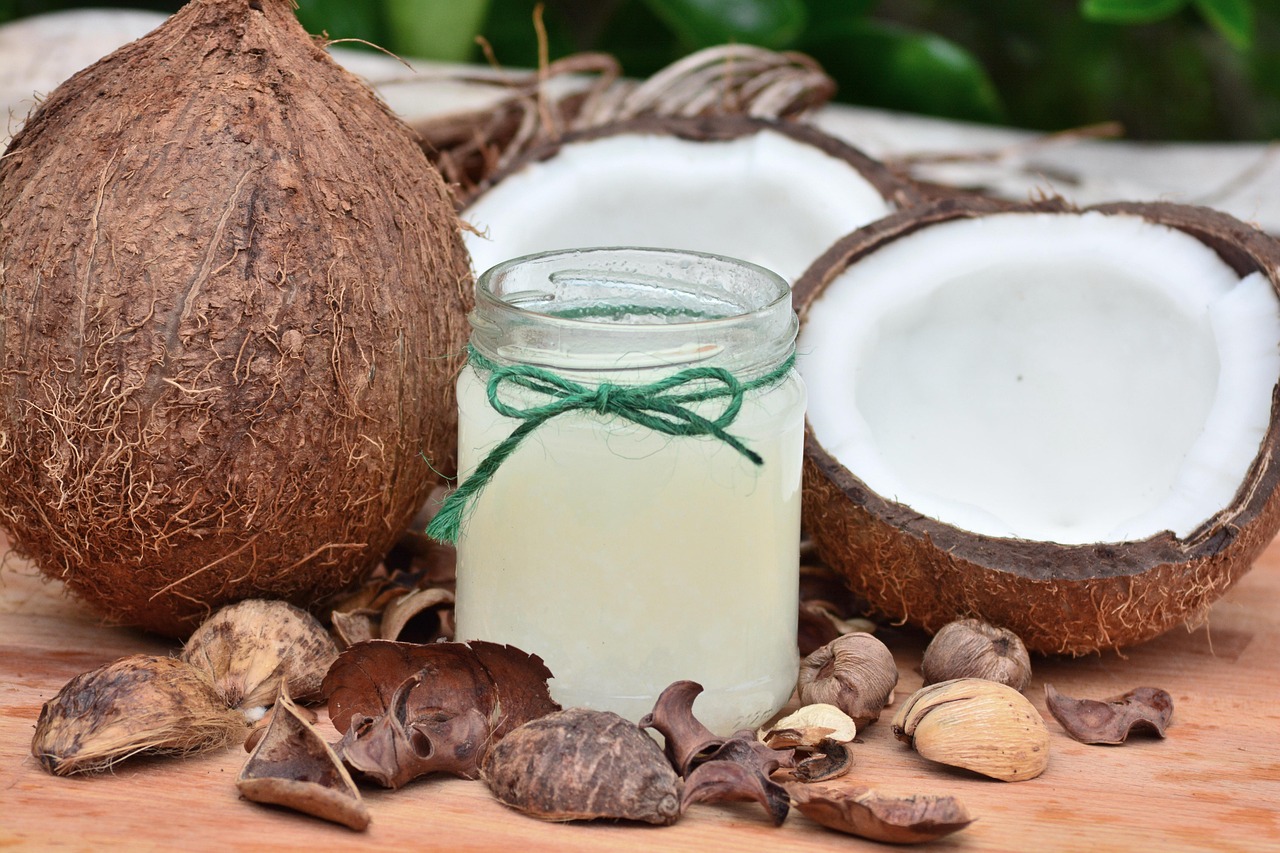Coconut Oil for Skin: Benefits, Risks, and How to Use It

Coconut oil has been a staple in skincare routines across many cultures for centuries. Derived from the meat of mature coconuts, this natural oil is rich in fatty acids, antioxidants, and vitamins that can benefit the skin in numerous ways. However, like many natural remedies, it’s not suitable for everyone. Let’s explore the benefits, risks, and best ways to use coconut oil for skin health.
What Makes Coconut Oil Special?
Coconut oil is composed primarily of saturated fats and medium-chain fatty acids like lauric acid, capric acid, and caprylic acid. These compounds are known for their moisturizing, antimicrobial, and anti-inflammatory properties, which make coconut oil a popular choice in natural skincare.
Benefits of Coconut Oil for Skin
1. Deep Moisturization
Coconut oil acts as an occlusive moisturizer, locking in hydration and preventing water loss from the skin barrier. It’s particularly effective for people with dry, flaky skin.
2. Antibacterial and Antifungal Properties
Lauric acid in coconut oil has antimicrobial effects, helping to fight bacteria, fungi, and viruses on the skin. This may support wound healing and reduce infection risk.
3. Soothing Inflammation
Coconut oil contains antioxidants and anti-inflammatory compounds that can help calm irritated skin and reduce redness, making it useful for conditions like eczema or dermatitis.
4. Supporting Wound Healing
Studies suggest that coconut oil may accelerate wound healing by promoting collagen production and keeping wounds hydrated.
5. Natural Makeup Remover
Because of its oily texture, coconut oil easily dissolves makeup, including waterproof mascara, while nourishing the skin at the same time.
Risks and Considerations
While coconut oil has many benefits, it’s not suitable for every skin type.
1. Comedogenic Properties
Coconut oil is comedogenic (rated 4 on the comedogenic scale), meaning it can clog pores. People with oily or acne-prone skin may experience more breakouts if they use it on the face.
2. Allergic Reactions
Though rare, some people may develop contact dermatitis or allergic reactions to coconut oil. Always patch test before applying it to larger areas of skin.
3. Not Always a Cure-All
While coconut oil helps with dryness and irritation, it’s not a replacement for medical treatment in conditions like severe eczema, psoriasis, or fungal infections.
How to Use Coconut Oil for Skin
1. As a Moisturizer
- Warm a pea-sized amount between your palms.
- Apply to slightly damp skin to lock in moisture.
- Best for dry areas such as elbows, knees, and heels.
2. As a Makeup Remover
- Massage a small amount onto your face.
- Wipe off gently with a warm, damp cloth.
- Follow with a gentle cleanser if you have acne-prone skin.
3. For Eczema or Irritated Skin
- Apply a thin layer of virgin coconut oil to affected patches.
- Use consistently for soothing relief.
4. As a Lip Balm
Coconut oil can soften chapped lips and protect them from dryness.
5. For Overnight Skin Treatment
Apply a light layer before bed as a nighttime hydrating mask, but avoid if your skin is acne-prone.
Best Type of Coconut Oil for Skin
For skincare, unrefined (virgin or cold-pressed) coconut oil is preferred because it retains more nutrients and beneficial compounds compared to refined versions. Look for organic, chemical-free options.
Final Thoughts
Coconut oil can be a powerful natural moisturizer and skin soother, especially for dry, irritated, or sensitive skin. However, its comedogenic nature means it’s not suitable for everyone—especially those with oily or acne-prone skin. Used correctly, coconut oil can be a valuable addition to your skincare routine, but patch testing and moderation are key.






